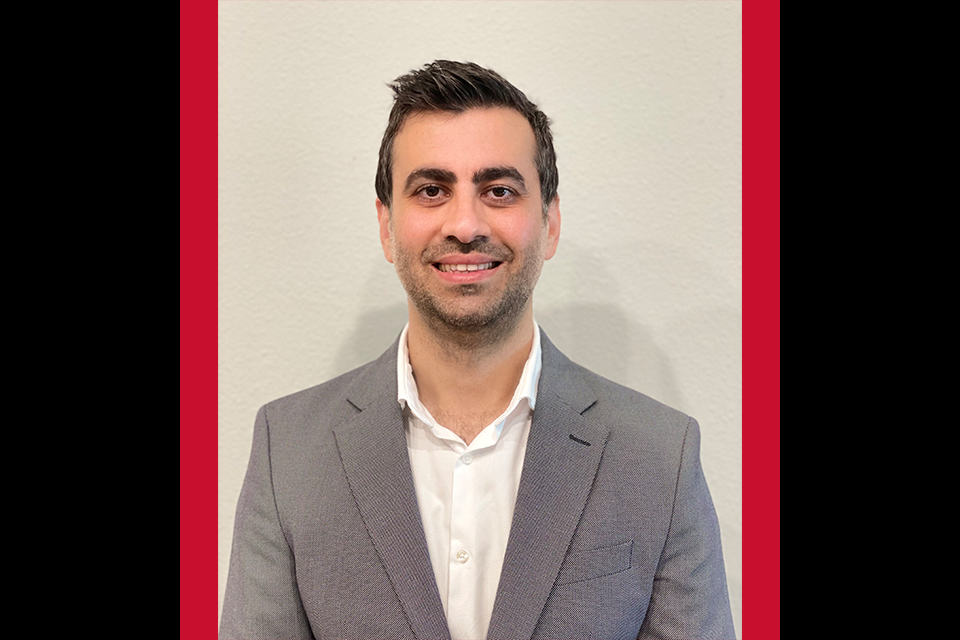My UMSOP Story: Husam Albarmawi, PhD, health economist, Genentech
Husam Albarmawi, PhD ’20, is an alumnus of the PhD in Pharmaceutical Health Services Research (PHSR) program. Prior to attending the University of Maryland School of Pharmacy (UMSOP), Albarmawi received his bachelor’s degree in pharmacy from the University of Jordan. He is now a health economist at Genentech Inc.
What was your journey to get to UMSOP?
After graduating from the University of Jordan in 2010, I worked at a health insurance company for a year before joining the generics pharmaceutical company, Hikma, as a research pharmacist. My work was focused on drug formulation in the lab. After a few years, I decided to follow my interest and pursue a PhD while studying pharmacoeconomics. I applied to the PHSR PhD program at UMSOP and started my journey in 2014.
What attracted you to UMSOP?
First, it was the excellent reputation of PHSR and UMSOP in general. I was impressed by the School’s ranking, and had heard positive feedback from current students and professionals who were familiar with the PHSR program.
Second, I was attracted by the availability of different tracks within PHSR and the expertise of the faculty leading those tracks. Other factors included the financial funding of PhD students through teaching or research assistantships, as well as UMSOP’s proximity to major research institutes, such as the NIH, the Agency for Healthcare Research and Quality, and the FDA.
How would you describe your experience as an international student at UMSOP?
One of the core values of the University of Maryland, Baltimore (UMB) is diversity. Although I was excited to receive my training at a US institution, international students were encouraged to embrace their diverse backgrounds and share their expertise with colleagues at UMSOP. This helped me bring my best self to school and share my culture with my colleagues. Also, the presence of many other international students at UMSOP enriched my experience as I made friends from different parts of the world and learned about their cultures.
What did you do your dissertation on?
My dissertation was in follicular lymphoma, with a focus was on using real-world data from routine clinical practice to understand the factors that determine patients’ stage at diagnosis. The rationale was that, on average, patients who present with limited-stage follicular lymphoma at the time of diagnosis have better prognosis than those who present with an advanced stage.
I found that higher frequency of specialist physician visits in the three years leading to the follicular lymphoma diagnosis was linked to a lower risk of presenting with an advanced stage. I also found that living in counties with a shortage in primary care professionals was associated with an increased risk of presenting with an advanced stage. These results suggested that regular follow-up with health care providers and overcoming shortages of primary care professionals at the county level could help reduce the risk of diagnosing follicular lymphoma at advanced stages.
What memories come to mind when thinking about your time at UMSOP?
A lot of coding and programming! Of course, there was a lot of hard work on classes, my dissertation, and research projects, but at the same time I received excellent training from distinguished faculty. I particularly enjoyed our weekly seminars with faculty, postdocs, and students.
Aside from schoolwork, I had an awesome group of colleagues and classmates who made the journey easier and way more fun. I recall our late nights in the office (aka pizza nights) when we had an exam or an assignment coming up.
What has been your career path since graduating?
I started working in the pharmaceutical industry a few months before graduation. I joined Genentech as an associate health economist, and earlier this year I was promoted to health economist. My training at UMSOP was heavily focused on oncology, and I continued working in this space after graduation.
What motivates you to pursue this career?
Since I did my bachelor’s in pharmacy, I remained interested in biostatistics and pharmacoeconomics. After joining PHSR, I was especially interested in applying the research methods that I learned to answer real-world questions that are of importance to patients, health care providers, and payers, such as:
- Which medication is more effective in the real-world setting?
- Is a new medication cost-effective?
- What is the clinical and economic burden of a certain disease?
Working in the pharmaceutical industry as a health economist allows me to explore these questions while improving patients’ access to life-saving medications. Another factor that motivates me is interacting with successful role models in the field. It gives me energy to become better at what I do.
How have you used the knowledge or skills learned at UMSOP in your career?
My training at PHSR prepared me to immediately lead and support research projects after graduation. After a short transition period, I was responsible for leading the health economics and outcomes research activities in genitourinary cancers at Genentech. I would not have been able to take on this role so quickly if it were not for my training at UMSOP.
What is your advice to prospective students who might consider applying to this program?
PHSR will open doors for you. The training you get here is among the best in the nation. I keep hearing this from people who are familiar with the program. You will also have excellent networking opportunities and will develop the experience needed to begin a career in the pharmaceutical industry, academia, government, or consulting.
About the PhD in PHSR program: The widespread use of medications in society has created a demand for individuals skilled in the evaluation of pharmaceutical services and interventions. The PhD in PHSR program provides graduates with the theory, practical experience, and decision-making skills they need to become expert researchers and address a wide range of pharmacy-related problems. Learn more and apply today.

